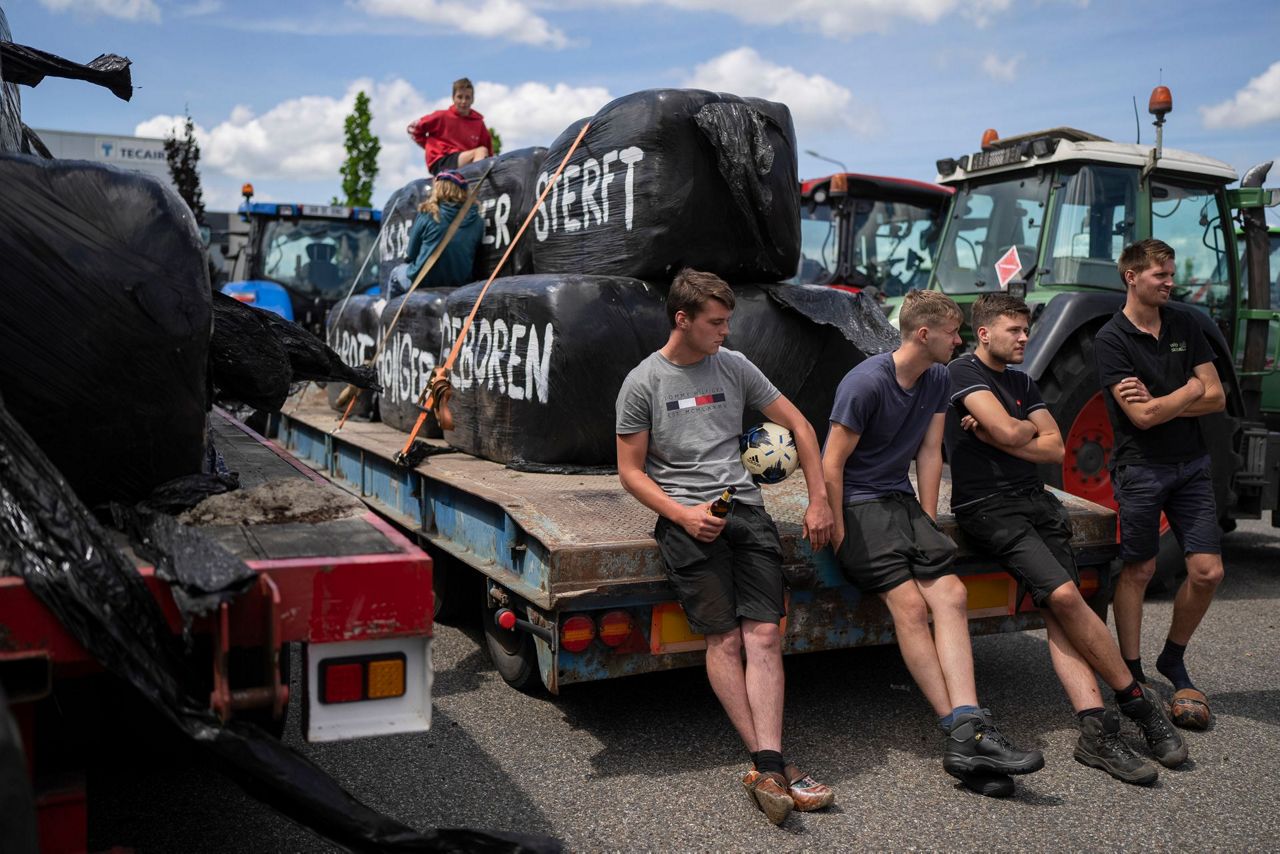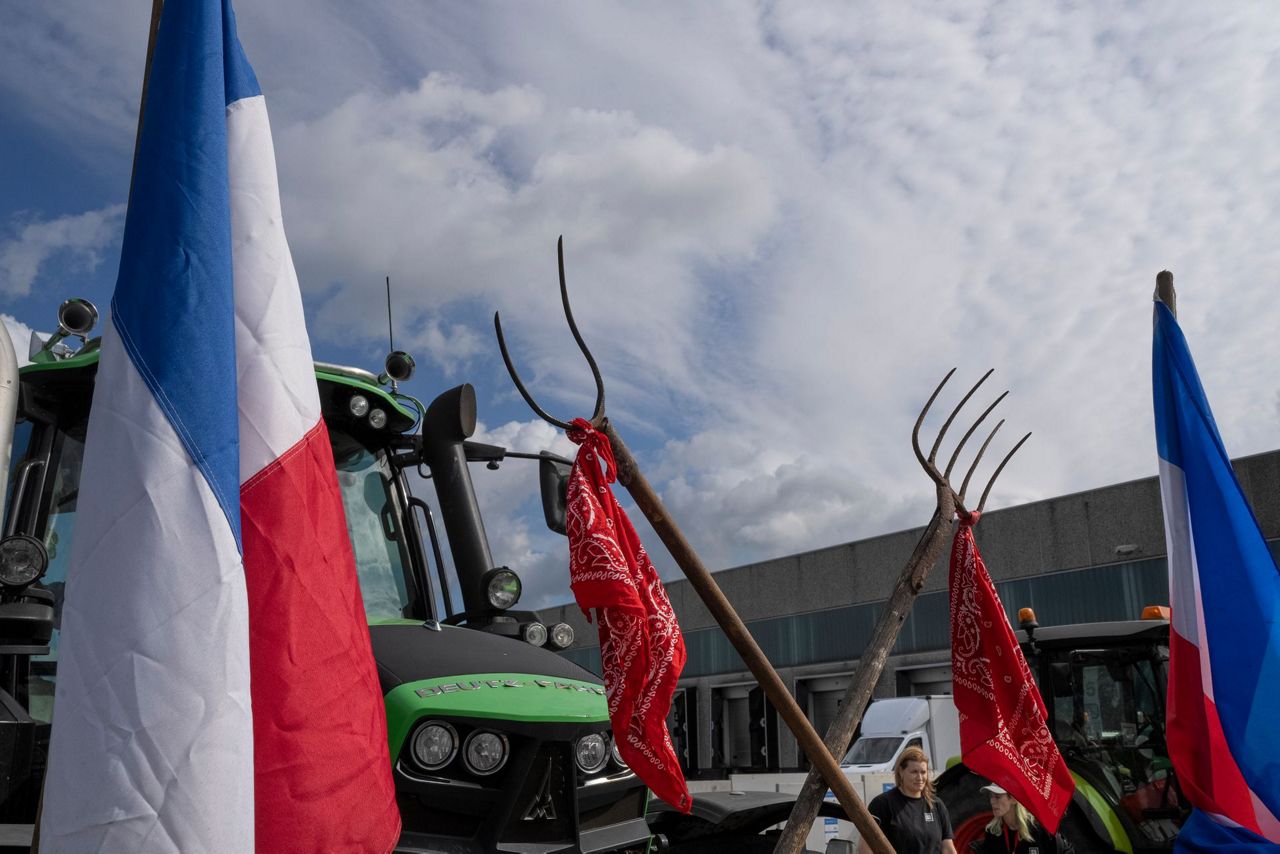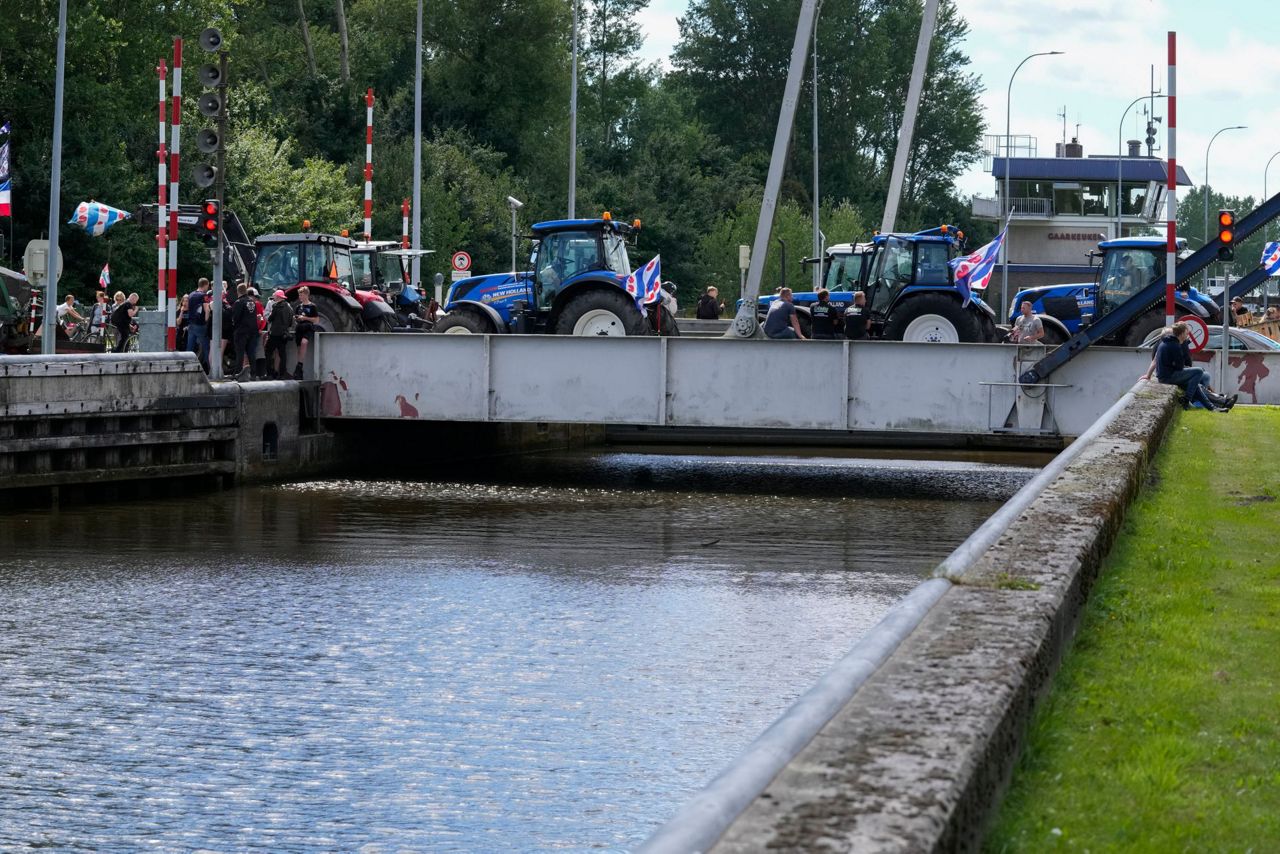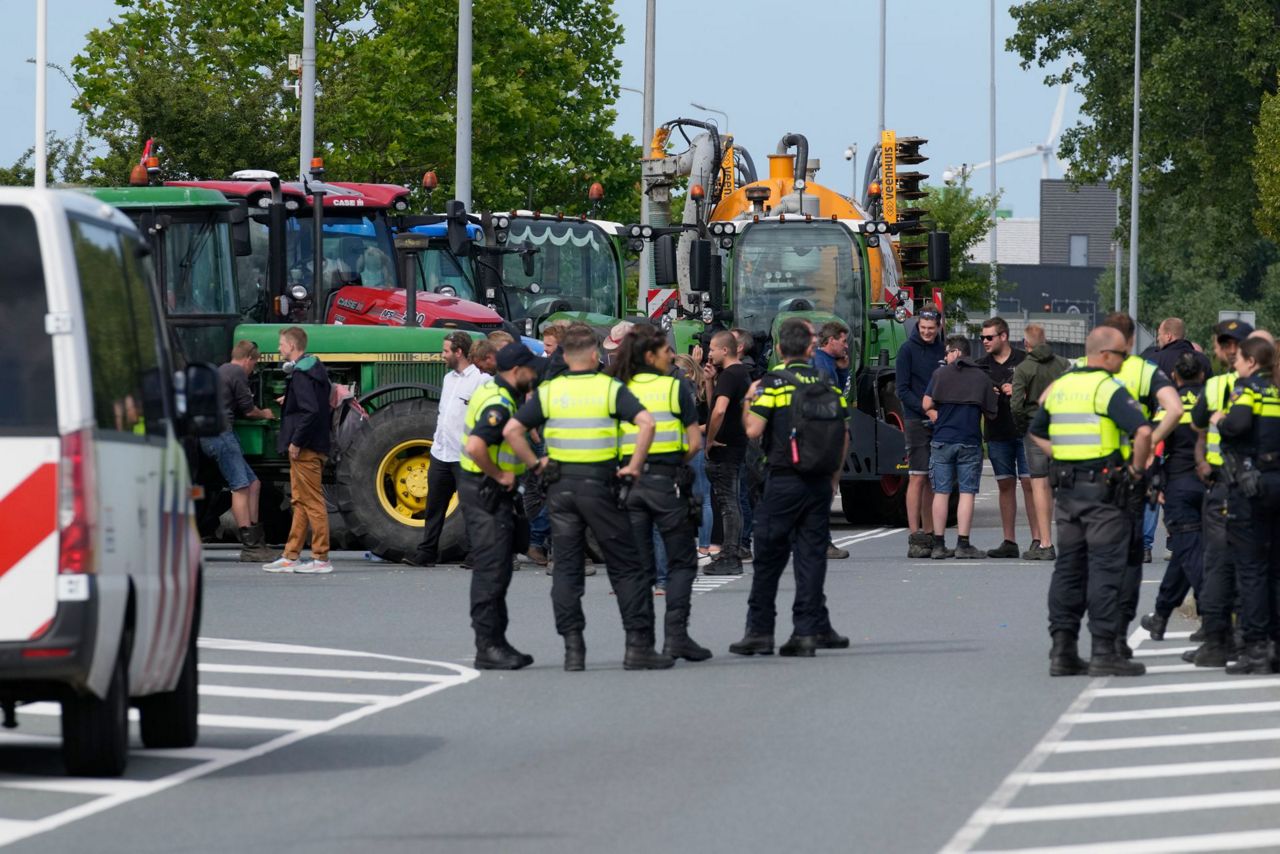THE HAGUE, Netherlands (AP) — The leader of the Netherlands' top agricultural lobby group said that a first round of talks Friday with a delegation led by Prime Minister Mark Rutte about the government’s nitrogen emissions reduction goals delivered “at the moment, too little" for thousands of farmers living in uncertainty.
The emission targets have sparked disruptive protests in recent weeks and Johan Remkes, a veteran political bridge builder who led Friday's talks, acknowledged that there is a “deep crisis of confidence” between the parties, while also describing the discussions as “exceptionally constructive.”
Further talks are planned in an attempt to ease the crisis. Rutte said dialogue is “crucial” to restore confidence.
Sjaak van der Tak, chairman of the main farmers’ lobby group LTO, that represents some 30,000 farms in the Netherlands, said the government had given ground in the talks, but “at the moment, too little.”
“The Cabinet did not want to make more concessions, the Cabinet apparently needs more time to prepare for the next talks,” he said.
Two main activist farmers' organizations demanding concessions from the government did not attend the talks in the central city of Utrecht because they say they do not trust Remkes, a member of Rutte's political party, but they were represented by LTO.
Farmers angry at the target of slashing nitrogen emissions 50% by 2030 have blockaded supermarket distribution centers, parked tractors on highways and dumped garbage including manure and asbestos on roads in recent weeks.
Rutte has criticized what he said are small groups of farmers who he says have endangered others with the nature of their protests. “Willfully endangering others, damaging our infrastructure and threatening people who help clean up is beyond all limits,” he wrote on Twitter last week.
Remkes said the crisis of confidence “goes deeper than the current nitrogen discussion” and has been caused in part by years of government agricultural policy and a feeling among farmers that their efforts in recent years to reduce emissions have not been acknowledged.
The government has been forced to act after courts in recent years began blocking permits for infrastructure and housing projects because the country was missing its emissions targets.
The government has earmarked an extra 24.3 billion euros ($25.6 billion) to finance agricultural reforms that will likely make many farmers drastically reduce their number of livestock or get rid of them altogether. Provincial authorities have been given a year to formulate plans to cut emissions.
Farming is an important part of the Dutch economy. LTO says there are nearly 54,000 agricultural businesses in the Netherlands with exports totaling 94.5 billion euros in 2019.
Copyright 2022 The Associated Press. All rights reserved. This material may not be published, broadcast, rewritten or redistributed without permission.






